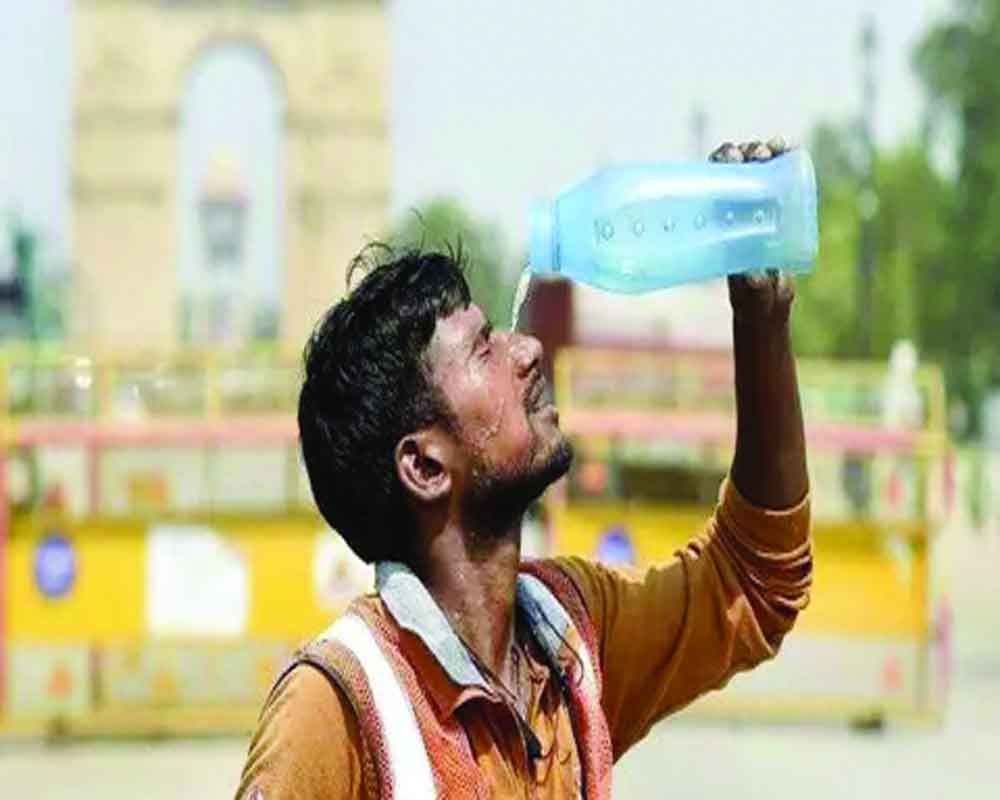The Indian Meteorological Department has forecast severe heatwave, leading to high health risk
As if the scorching sensation on the skin and mercury’s validation of the heat and humidity were not enough, the Weatherman has issued a stark warning for northwest India, forecasting a severe heatwave with a high health risk over the next week. The announcement comes as temperatures continue to soar, posing significant challenges to people’s wellbeing and safety. With temperatures likely to reach alarming levels, the Indian Meteorological Department (IMD) advisory underscores the urgency for residents, authorities and healthcare providers to take proactive measures to mitigate their impact. Heatwaves are characterised by prolonged periods of excessively high temperatures, often accompanied by high humidity levels, which can exacerbate the risk of heat-related illnesses and even fatalities. Northwest India, comprising States such as Rajasthan, Gujarat, Punjab, Haryana and parts of Uttar Pradesh and Madhya Pradesh, is particularly susceptible to extreme heat events due to its geographical location. Prolonged exposure to high temperatures can lead to various ailments, including exhaustion, heatstroke, dehydration and cramps. Vulnerable populations – such as the elderly, children, pregnant women and those with pre-existing health conditions – are at heightened risk during such extreme weather conditions. Heat-related illnesses can manifest swiftly and escalate rapidly, necessitating prompt medical attention. Symptoms such as dizziness, nausea, rapid heartbeat, confusion and fainting should not be taken lightly. Of course, one cannot fight Nature but one can always be prepared to minimise its ill effects.
To mitigate the adverse effects of the IMD forecast, it is essential to launch comprehensive public awareness campaigns to educate residents on the risks and preventive measures of heatwaves. As a thumb rule, those living on pavements and in shanties are at bigger health risk. Establishing cooling centres with air conditioning, fans and hydration facilities will provide critical relief to the vulnerable population. Encouraging people to stay hydrated and seek shelter in cool, shaded areas during peak heat hours is vital. The old system of piyaus is long gone; instead, now only bottled water is available. The Government must set up water kiosks so that people can get free, clean drinking water on the go. Additionally, urban planning strategies that incorporate green spaces, tree cover and reflective surfaces can mitigate the urban heat island effect and enhance thermal comfort in urban environments. During summers, water scarcity and power cuts turn things worse. The authorities must ensure that load shedding is kept to a minimum and clean drinking water is available; otherwise the chances of outbreak of waterborne diseases are high. As northwest India braces for a severe heatwave, prioritising public health and safety is paramount. The IMD forecast serves as a crucial reminder to remain vigilant, stay informed and make concerted efforts to mitigate the risks. We have braved many adversities; this too will pass!


























